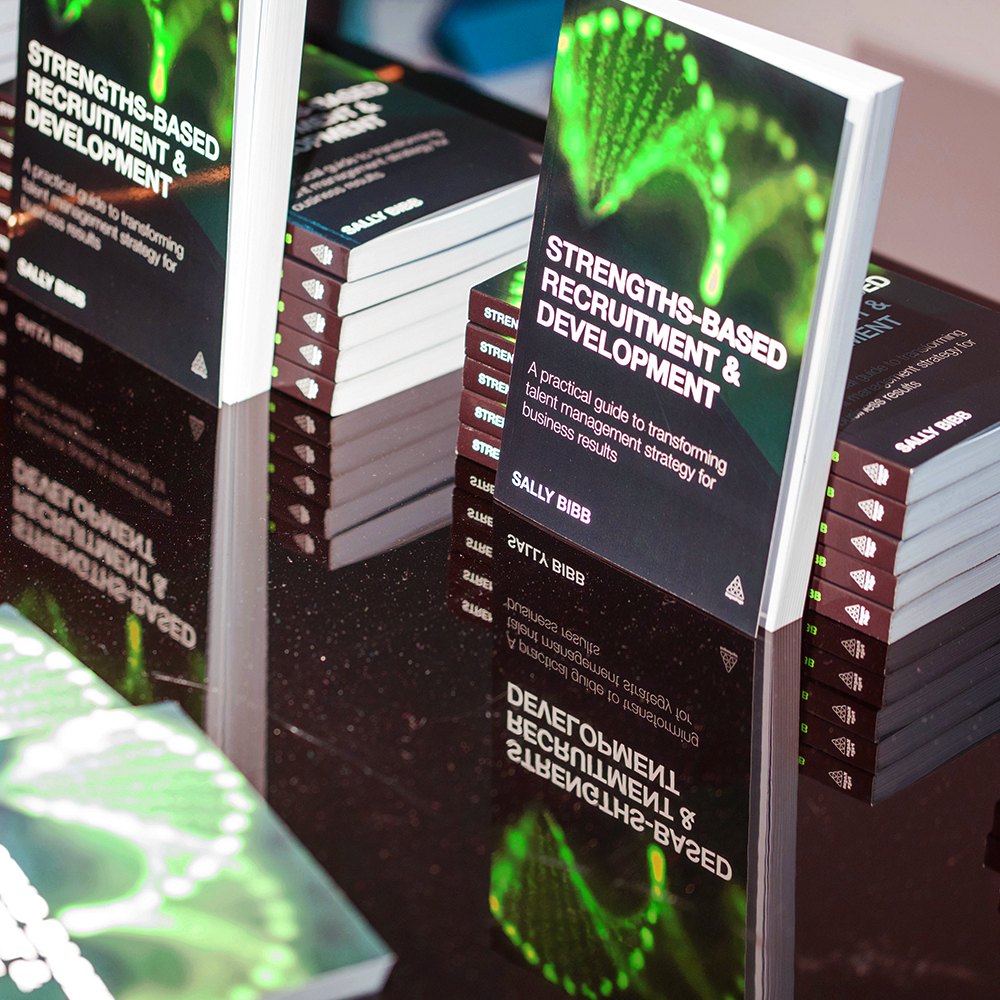
Strengths-based performance management goes hand in hand with strengths-based development. More and more successful organisations are choosing these strengths approaches. The question is, why?
We know from evolutionary biology and neuroscience that it’s human nature to focus more on the negative because we are programmed to be alert to risks in our environment. Organisms that were alert to risk were more likely to survive. Early man had to worry about wild animals and neighbouring tribes, so it was essential to focus on potential problems.
In his article for Psychology Today (2015), psychologist Ryan Niemec talks about the neurological wiring that gives human beings a negativity bias. In this article he argues that this negativity bias means that there are times and situations when we are “strengths-based” but that we quickly shift back to a problem mindset.
In today’s context, that translates to focusing on what is not working, including, when we are given feedback, a tendency to obsess about the one negative thing someone says and gloss over the positives. Certainly in performance reviews people tend to remember, and be affected more by, the conversation about their weaknesses. In my experience, unless you ring-fence conversations about weaknesses and talk solely about strengths first, the giver and receiver of the performance review ends up focusing the most on weaknesses.
It’s certainly uncomfortable in some cultures and for some individuals to give praise and compliments, and in management we can be biased towards seeing what is wrong and trying to fix it. Indeed there are some jobs whose successful execution is dependent on that. You would want an airline pilot for example to spot what is wrong and you’d expect a manufacturing company to see errors and problems and fix them. But the same approach to human development and growth can result in a focus on the negative to the detriment of the positive.
Given that there are very good evolutionary reasons to explain why humans focus more on the negative than the positive, and why a negative occurrence has more of an impact than a positive occurrence, let’s look at the importance of shifting the balance towards strengths-based performance management and strengths-based performance conversations.
There are a number of reasons why organisations are adopting strengths-based performance management and development, including wanting a more balanced approach to development which focuses as much, if not more, on strengths as on weaknesses. There is a recognition that focusing on strengths as well as areas that need development presents an opportunity to significantly lift the performance of individuals as well as the organisation. There are other reasons too:
- They want an individualised approach to development and performance management not a one-size-fits all
- They want a fresh and engaging approach to development as well as performance management conversations
- Their managers are disillusioned with competency-based approaches (which can result in having the same performance conversation year after year with an employee and nothing changing)
- They want the employee to feel responsible for their development (much easier with a strengths approach because it is far more motivational)
- It intuitively feels right to ‘go with the grain’ of human strengths versus the more uphill approaches to development that emphasise what’s wrong more than what is working well
- Strengths-based performance management conversations put the emphasis on augmenting what the person does well while effectively managing those weaknesses they have that could trip them up in their job
The idea of strengths-based performance management and development is not new though. Peter Drucker, the management writer and consultant, first advocated it more than forty years ago in his book The Effective Executive. Drucker was ahead of his time in his thinking about what makes for high performance. He realised that it is more productive to focus on building strengths than fixing weaknesses, saying:
“Unless an executive looks for strength and works at making strengths productive, he will only get the impact of what a man cannot do, of his lacks, his weaknesses, his impediments to performance and effectiveness. To start from what there is not and to focus on weakness is wasteful – a mis-use, if not abuse, of the human resource.”
In an interview for my book Samantha Rockey, Head of Leadership Development for SABMiller said this:
“We do look at where development needs to happen – that’s important and cannot be ignored. However, we strike the balance by putting a great deal of emphasis on leveraging strengths. It’s been very liberating for people. It’s energising and motivating for them to channel their energy into their strengths and passion.”
Engaging Minds was shortlisted for the 2016 CIPD People Management Awards for our project A strengths-based approach to unlocking SABMiller’s global leadership potential for business results in the Best HR/L&D consultancy category.
The full interview with Samantha Rockey is available to read in Sally Bibb’s book, Strengths-based Recruitment and Development: A Practical Guide to Transforming Talent Management Strategy for Business Results (Kogan Page, May 2016). The book is the first to be written on the subject.


